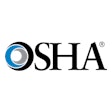
The U.S. Department of Labor's Occupational Safety and Health Administration (OSHA) has announced a new regional emphasis program aimed at improving worker safety in Missouri’s grain handling industry, expanding existing programs already in place in Kansas and Nebraska. The initiative comes in response to ongoing safety concerns and a series of preventable fatalities and injuries at grain handling facilities in the region.
The program targets grain elevators, storage and milling operations, as well as facilities involved in animal feed production, farm machinery repair, and equipment maintenance. It will be in effect through September 30, 2029, and aims to reduce hazards that have historically posed severe risks to industry workers.
Between October 1, 2020, and September 30, 2023, OSHA responded to three fatalities, 13 reported amputations, and 36 hospitalizations in the grain handling industry across Missouri, Kansas, and Nebraska. During that period, the agency conducted 104 inspections in the three states and received 131 complaints about unsafe conditions.
“The tragic toll of preventable deaths and injuries in the grain handling industry highlights the severe dangers workers face when safety regulations are ignored,” said OSHA Regional Administrator Billie A. Kizer in Kansas City, Missouri. “With this regional emphasis program, OSHA can target high-risk worksites, pushing employers to tackle the root causes of worker injuries and prioritize safety as a core business value.”
Grain handling facilities present numerous safety hazards, including the risk of fires and explosions from combustible dust, engulfment, confined space incidents, falls, auger entanglements, electrical shock, and rail car operation dangers. These hazards are often exacerbated by a lack of proper safety procedures and equipment maintenance.
To help address these risks, OSHA has partnered with the Grain Handling Safety Coalition, the Grain Elevator and Processing Society, and the National Grain and Feed Association to improve safety management systems and educate employers and workers about safe practices in grain handling. The agency also offers free and confidential safety consultations through its On-Site Consultation Program, prioritizing high-risk worksites.
As part of its educational efforts, OSHA provides a variety of online resources covering agricultural hazards, respiratory protection, and risk assessments to help employers comply with safety regulations and prevent injuries and fatalities.
This expanded emphasis program is expected to help reduce the high rate of preventable injuries and fatalities in the grain handling industry and encourage a culture of safety among employers in the region.

















